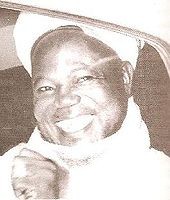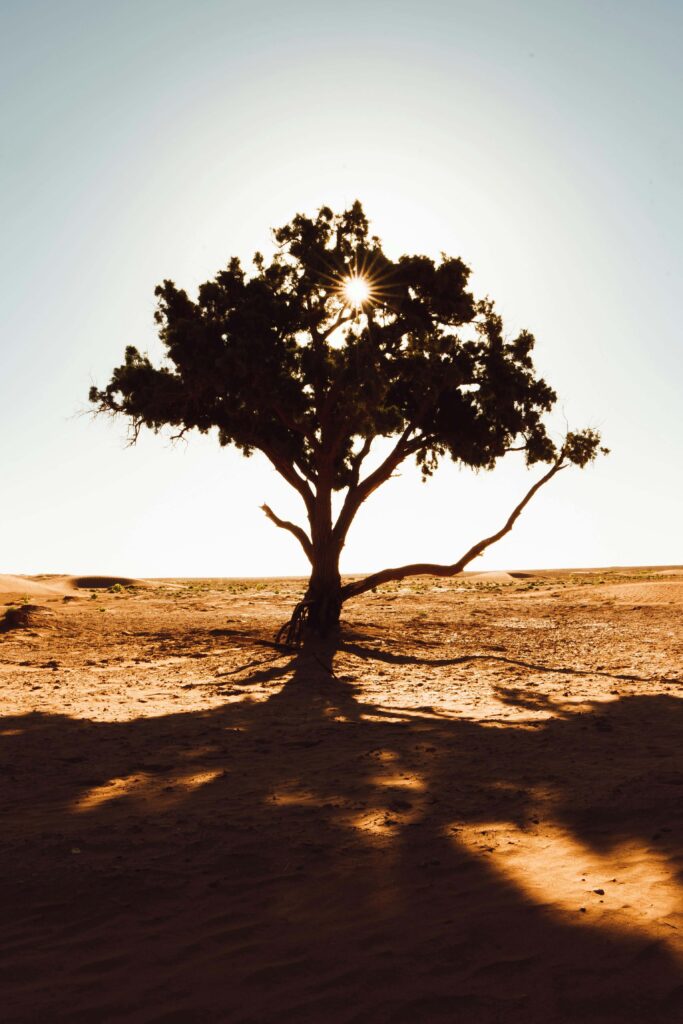About Us
Invest in Northern Nigeria Limited (IINNL) is a private-sector-led initiative dedicated to transforming Northern Nigeria’s rich human capital into sustainable economic growth and development.
History Of The Great Northern Nigeria
Courtesy of; http://en.wikipedia.org/wiki/Northern_Nigeria
Northern Nigeria
Northern Nigeria is a geographical region of Nigeria. It is more arid and less densely populated than the south. The people are largely Muslim, and many are Hausa. Much of the north was once politically united in the Northern Region, a federal division disbanded in 1967.
Hausa States
The Hausa States or Hausa Kingdoms were a collection of independent city-states situated in what became Northern Nigeria. Despite relatively constant growth, the city-states were vulnerable to aggression and, although the vast majority of its inhabitants were Muslim by the 16th century, they were attacked by Muslim jihadists from 1804 to 1808. In 1808 the last Hausa state was finally conquered by Usuman dan Fodio and incorporated into the Sokoto Caliphate.
Arrival of the Hausa
Between 500 CE and 700 CE Hausa people, who had been slowly moving west from Nubia and mixing in with the local Northern and Central Nigerian population, established a number of strong states in what is now Northern and Central Nigeria and Eastern Niger. With the decline of the Nok and Sokoto, who had previously controlled Central and Northern Nigeria between 800 BCE and 200 CE, the Hausa were able to emerge as the new power in the region. Closely linked with the Kanuri people of Kanem-Bornu (Lake Chad), the Hausa aristocracy adopted Islam in the 11th century CE. By the 12th century CE the Hausa were becoming one of Africa’s major powers. The architecture of the Hausa is perhaps one of the least known but most beautiful of the medieval age. Many of their early mosques and palaces are bright and colourful and often include intricate engraving or elaborate symbols designed into the façade. By 1500 CE the Hausa utilized a modified Arabic script known as ajami to record their own language; the Hausa compiled several written histories, the most popular being the Kano Chronicle.
The Fourteen Kingdoms
The Hausa Kingdoms emerged in the 13th century as vibrant trading centers competing with Kanem-Bornu and Mali. The primary exports were leather, gold, cloth, salt, kola nuts, animal hides, and henna. Except for minor alliances, the Hausa city-states functioned independently. Rivalries generally inhibited the formation of one centralized authority.
There were fourteen Hausa Kingdoms: The “Hausa Seven” and the “Counterfeit Seven”
The Hausa Kingdoms began as seven states with a shared mythology with its founders being the sons of a Queen. They are known as the Hausa Bakwai meaning Hausa Seven. The states included:
- Daura? – 1806
- Kano 1998 – 1807
- Katsina 1400 – 1805
- Zazzau(Zaria) c. 1200 – 1808
- Gobir? – 1808
- Rano
- Biram 1100 – 1805
The growth and conquest of the Hausa Bakwai resulted in the founding of additional states with rulers tracing their lineage to a concubine of the Hausa founding father, Bayajidda. Thus they are called the ‘Banza Bakwai meaning Counterfeit Seven. The Banza Bakwai adopted many of the customs and institutions of the Hausa Bakwai but were considered unsanctioned or copy-cat kingdoms by non-Hausa people. These states include:
- Zamfara
- Kebbi
- Yauri(also called Yawuri)
- Gwari(also called Gwariland)
- Kwararafa (a Jukun state)
- Nupe(of the Nupe people)
- lLorin (a Yoruba state)
Fulani Empire and Bornu Empire
Usuman dan Fodio led a jihad against the Hausa States and finally united them into the Muslim Fulani Empire. The Fulani Empire was under the overall authority of the Commander of the Faithful, all of whom after Usman dan Fodio also used the title Sultan of Sokoto. Under him the Empire was bicephalous and divided into two territories each controlled by an appointed vizier. Each of the territories was further divided into autonomous Emirates under mainly hereditary local Emirs. The Bornu Empire was initially absorbed into the Fulani Empireof Usman dan Fodio, but broke away after a few years claiming increasing corruption of the Fulani Empire.
Royal Niger Company Territory
Initially the British involvement in Northern Nigeria was predominantly trade-related, and revolved around the expansion of the Royal Niger Company, whose interior territories spread north from about where the Niger River and Benin River joined at Lokoja. The Royal Niger Company’s territory did not represent a direct threat to the powerful Fulani empire.
Protectorate of Northern Nigeria
History of the Protectorate of Northern Nigeria
Northern Nigeria was a British colony formed in 1900. The basis of the colony was the 1885 Treaty of Berlin which broadly granted Northern Nig’ria to Britain, on the basis of their protectorates in Southern Nigeria.
Britain's chosen Governor, Frederick Lugard, with limited resources, slowly negotiated with ,and sometimes coerced, the emirates of the north into accepting British rule, finding that the only way this could be achieved was with the consent of local rulers through a policy of indirect rule which he developed from a necessary improvisation into a sophisticated political theory. Lugard left the protectorate after some years, serving in Hong Kong, but was eventually returned to work in Nigeria where he decided on the merger of the Northern Nigeria Protectorate withSouthern Nigeria in 1914.
Modern Northern Nigeria
The following 19 Nigerian states comprise Northern Nigeria:
- Adamawa
- Bauchi
- Borno
- Gombe
- Jigawa
- Kaduna
- Kano
- Katsina
- Kebbi
- Sokoto
- Yobe
- Zamfara
- Plateau
- Benue
- Nasarawa
- Kogi
- Kwara
- Niger
- Taraba
Alh. Sir Ahmadu Bello, The Sardauna of Sokoto & Premier of Northern Nigeria.
Courtesy of; http://en.wikipedia.org/wiki/Northern_Nigeria

Al-Hajji Sir Ahmadu Bello (June 12, 1910 – January 15, 1966) was a Nigerian politician, and was the first premier of the Northern Nigeria region from 1954-1966. He was one of the prominent leaders in Northern
Nigeria alongside Alh. Sir Abubakar Tafawa Balewa, both of whom where prominent in negotiations about the region's place in an independent Nigeria. As leader of the Northern People's Congress, the party was able to win the 1959 parliamentary elections. However, he was assassinated on Friday January 15, 1966.
Early life
He was born in Rabbah, Sokoto State. The son of a district head and heir to the Sokoto Emirate. His great-grandfather was Sultan Bello, the founder of Sokoto and son of the revered Usman Dan Fodio. Ahmadu Bello received his education first at the Sokoto Provincial School, the only modern school at the time in the Sokoto province. Then, he proceeded to the Katsina Teacher's Training College. After spending five years at Katsina, he was appointed by the Sultan to become a teacher at the Sokoto Middle School, his former school which had undergone rapid transformation. In 1934, he was made the district head of Rabbah, four years later, he was promoted and sent to Gusau to become a divisional head. In 1938, he made an unsuccessful bid to become the new Sultan of Sokoto. The successful sultan immediately conferred upon Sir Ahmadu Bello the traditional, now honorary, title of Sarduna, alternatively spelled Sardauna, and elevated him to the Sokoto Native Authority Council. In 1948, he was offered a scholarship to study local government administration in England. Ahmadu Bello took the scholarship sensing he needed to shore up his knowledge about the process of governance.
Nigerian politics
After returning from England, he was nominated to represent the province of Sokoto in the regional House of Assembly. As a member of the assembly, he was a notable voice for northern interest and embraced a style of consultation and consensus with the major representatives of the northern emirates: Kano, Bornu and Sokoto. In the first elections held in Northern Nigeria in 1952, Sir Ahmadu Bello won a seat in the Northern House of
Assembly, and became a member of the regional executive council as minister of works. Bello was successively minister of Works, of Local Government, and of Community Development in the Northern Region of Nigeria.
In 1954, Bello became the first Premier of Northern Nigeria. In the 1959 independence elections, Bello led the NPC to win a plurality of the parliamentary seats. Bello's NPC forged an alliance with Dr. Nnamdi Azikiwe's NCNC (National Council of Nigeria and the Cameroons) to form Nigeria's first indigenous federal government which led to independence from Britain. In forming the 1960 independence federal government of the Nigeria, Bello as president of the NPC, chose to remain Premier of Northern Nigeria and devolved the position of Prime Ministerof the Federation to the deputy president of the NPC, Alh. Sir Abubakar Tafawa Balewa.
Bello's greatest legacy was the modernization and unification of the diverse people of Northern Nigeria. He was assassinated during a Friday, 15 January 1966 military coup which toppled Nigeria's post-independence government. He was still serving as premier of Northern Nigeria at the time.
The Ahmadu Bello University is named after him. His portrait adorns Nigeria's 200 naira note, and he is survived by one child.

Our Mission
To revive and put back into work, our heritage and culture of contributory participation, in activities of our daily life and remove dependence on, but compliment effort of government, to enable us, as a people of the Region of the former Northern Nigeria, deliver what an individual, or small group effort cannot.
Our Vision
To transform our rich human capital into an economic Capital and intellectual asset for the benefit of humankind, growth and development of the Northern Region of Nigeria.

The Board
Engr. Mustafa Bello, FNSE
Founder and Chief Promoter
Alh. Abdullahi Ibrahim Halilu
Board Member
Alh. Abdulkadir Jeli Bello
Board Member
Haj. Aishah Saleh Minjibir
Board Member
Amb. Usman Baraya
Board Member
Engr. Muhammad Sani Alhassan
Board Member
Get Involved with IINNL
At IINNL, we believe that sustainable development is a collective effort. Whether you’re an individual, organization, or investor, there are many ways to get involved and make a difference. Explore the opportunities below and take the first step toward contributing to Northern Nigeria’s growth.
Join Our Human Capital Database
Register your expertise and collaborate with us on impactful projects.
